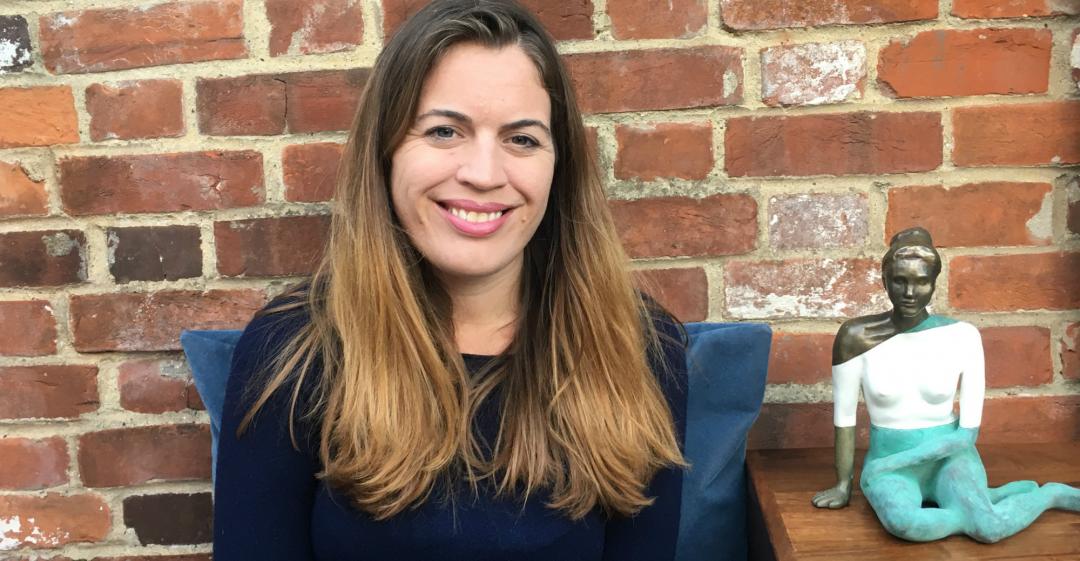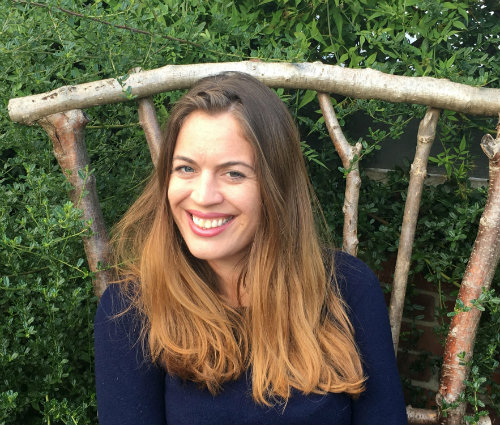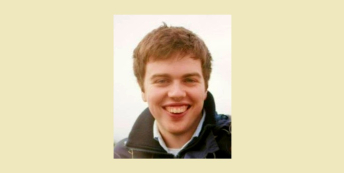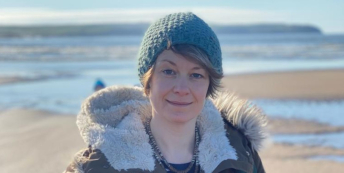“My friends all seemed to know what they were doing with their careers, while I felt stuck and unfulfilled.”

What work were you doing previously?
I was an account manager, at a social media marketing agency with a lot of blue-chip clients.
What are you doing now?
I've got two roles now.
I'm Communications Director of a medtech start-up by day, and in my spare time I'm a sculptor, which involves creating a range of my own figurative sculptures and running workshops for children.
Why did you change?
The agency job was very stressful and creatively unfulfilling.
It was a great place to further my digital marketing skills, but I had little ownership over the projects I was assigned to, and I felt that the work was very prescribed.
While it was a fun and lively place to work, there was also a lot of pressure and high staff turnover, which I found unnerving; we never knew who was going to be next out of the door.
I'm very creative and I've always loved sculpting in my free time, but I was living in London in a tiny flat and I didn't really have the space to create anything. Plus, I had a job that I felt I had no real control over.
My friends all seemed to know what they were doing with their careers, while I felt stuck and unfulfilled.
When was the moment you decided to make the change?
I'd begun to use my digital marketing skills to promote my sculptures.
I created a Facebook page, Instagram channel and, eventually, a website (www.sculpturesbythea.com). I loved promoting my own brand rather than the blue-chip clients that I worked with at the agency. It gave me the sense of ownership that I longed for.
Having received some positive feedback on my social media channels, my confidence in my sculpting skills grew a little. So, I approached one of the organisers of the Spring Exhibition of Arts in Surrey to see if it would be possible to exhibit there, in addition to helping out behind the scenes.
He reviewed my work and agreed to me exhibiting; he even featured a piece of mine on the marketing flyer.
At the exhibition I overheard someone complimenting my sculpture. I was so happy! That compliment and the feedback I got from this event (my first exhibition since art college) gave me the confidence to believe I could sell my work; it spurred me on to follow my passion more seriously.
How did you choose your new career?
I handed in my notice at work, and I used my contacts on LinkedIn to set up as a freelance marketing consultant, so that I would have the flexibility I needed to concentrate on sculpting.
I decided I didn't want to sell all my original sculptures (each once takes so long to create, I find I get personally attached to them), so I went to investigate 3D printing them at a local event. It was there that I got talking to an entrepreneur who was in charge of a medtech start-up.
He helped me to explore 3D printing my sculptures. In return, I offered his start-up marketing advice and guidance. A year later, he offered me a role as Communications Director.
A couple of months ago I exhibited a range of limited-edition 3D-printed sculptures, in addition to some originals. By the end of the exhibition I'd sold four pieces of my work – something I'd never thought would happen.
But it doesn't stop there. In a previous attempt to change my career, I'd completed a teaching qualification, because I really enjoy working with young people. I wanted to use these skills in some way, but outside of a school setting, so I decided to start running sculpture workshops. I love the fun environments that I get to work in for these: festivals such as Latitude, Folk East, summer carnivals, etc.
Are you happy with the change?
My life has changed completely, and I'm really happy!
I used to see my career through other people's eyes. I'm a 'people pleaser', and would ask my friends and family what they thought I should be doing, rather than asking myself what I wanted.
That had given me a narrow-minded outlook that stopped me from seeing new opportunities and being creative in my approach to career.
Now, I'm working for a meaningful cause, with a passionate entrepreneur who has taught me many new skills – things like the product invention process and securing investment.
He also encourages me to pursue sculpting, so I'm free to be as creative as I like.
What do you miss?
I do miss the buzzy atmosphere in my old job.
I worked with a lot of people my age, so there was a lot of fun and socialising – plus I got a free breakfast on Fridays.
But I don't miss the lack of control over my work, or the fact that I wasn't doing anything particularly meaningful. My work at the medtech start-up is very rewarding, because we're developing new technology that will help a lot of people.
How did you go about making the shift?
I discovered Careershifters, and decided to sit in on an introductory call to find out more about the Career Change Launch Pad programme.
I heard some really interesting stories and insights, and I realised that there were lots of others who felt the same way as me.
I joined the course because I thought other people's situations and stories could inspire my own progress – which they did!
During the course I developed the confidence I needed to charge people for my sculptures, to market them, and to jump in and make the most of new opportunities.
It had never occurred to me that you could make a living from a portfolio career, in which you do a bit of this and a bit of that. That way of working really appealed to me, and now it's exactly what I'm doing.
What didn't go well? What wrong turns did you take?
I sometimes wish I'd kept my freelancing career going for a little bit longer, to see how far I could have gone with it.
I worked on some great projects and I really liked my clients. But practicality took over. I wanted to buy a house, which meant getting a stable job.
How did you handle your finances to make your shift possible?
I drew up a vision board of all the things I wanted in the future, including a cottage and a sculpture studio in Suffolk.
I needed regular paid work to get a mortgage, so I stopped freelancing and took a full-time Brand Manager role for a ski and snowboarding company. I'm a snowboarder myself, so it was a great fit for me. A year later, I was offered my current directorship, which was a big step up.
What was the most difficult thing about changing?
The financial instability of freelancing.
It was also hard to see how it would all come together, but the visualisation task really helped with that. I drew a picture which I looked at every now and again to keep me on track.
What help did you get? 
My contacts were very willing to help me with my new freelancing career – I found some great work almost immediately.
Friends and family were really supportive too.
When I began my career change, one of my friends described me as a 'creative problem solver'. I had never seen myself that way before, and it gave me a new way of looking at what I could do for work.
What have you learnt in the process?
Not to be so narrow-minded about career options.
In fact, when I see others in the same stuck situation I used to be in, I feel really frustrated. I want to tell them that change is possible – you just have to change your mindset!
What would you advise others to do in the same situation?
Don't be afraid to jump in and try new things!
You'll increase your confidence and expand your outlook on what's possible, then you can plan some practical steps to take you where you really want to go.
I'd also say that change doesn't necessarily happen overnight, from one big 'Aha!' moment. Sometimes it comes from lots of positive little moments, just as it has for me.
Thea took part in our Career Change Launch Pad. If you're ready to join a group of bright, motivated career changers on a structured programme to help you find more fulfilling work, you can find out more here.
What lessons could you take from Thea's story to use in your own career change? Let us know in the comments below.



